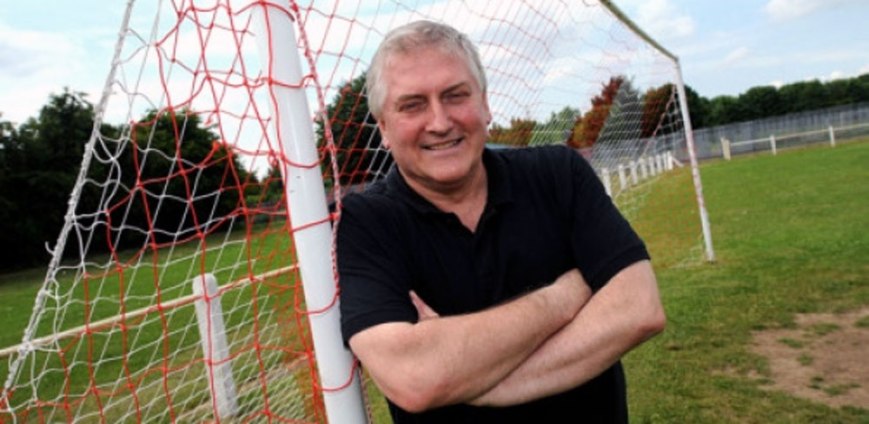Pit folks and Peers: The Remarkable History of the People of Fryston: Volume I – Echoes of Fryston Hall (1809-1908) by David Waddington
‘Meticulously researched, David Waddington vividly resuscitates the nineteenth-century lives of the inhabitants of long-lost Fryston Hall.’ Catherine Bailey, author of Black Diamonds: The Rise and Fall of an English Dynasty
In the first volume of a two volume history of the pit village that raised him, David Waddington has dug deep to present with joy and relish the undiscovered history of Fryston Hall, which was, as he describes it, ‘the most important hub of Victorian society outside of London, attracting the most eminent poets, writers, politicians, adventurers and other celebrities of the era.’ And he’s not joking.
Central to the story is the larger-than-life figure of Richard Monckton Milnes, the first Lord Houghton. He’s best remembered as the first biographer of Keats and for almost marrying Florence Nightingale, but there is much, much more to him than that. He was the Victorian hostess with the mostest, famous for his parties and gatherings that brought together people from across the political and social spectrum. Possibly the best description of him comes from the Scottish philosopher Thomas Carlyle: ‘Richard Monckton Milnes would make the ideal president of a Heaven and Hell Amalgamation Society.’
The people who pass through Fryston (and the pages of the book) include the cream of Victorian literary and political society, including the writers Alfred Lord Tennyson, William Makepeace Thackeray, Anthony Trollope, Wilkie Collins, Elizabeth Gaskell, Henry James, Frances Hodgson Burnett, Robert Browning and Algernon Charles Swinburne, who Milnes introduced to the great adventurer Sir Richard Francis Burton and the works of the Marquis de Sade (Milnes’s library was filled with the biggest collection of erotica in Europe – he was an enthusiastic Libertine). The book is a ‘who’s who’ of Victorian politics too, with prime ministers Lord Palmerston and Benjamin Disraeli amongst the prominent visitors to Fryston Hall. Milnes was the long-standing MP for Pontefract and was a classic paternalist, fighting for help for the poor, for women’s causes and against public executions and religious prejudice (rife in the Victorian era). He was also a great instigator for free public libraries. Milnes sat on the House of Commons select committee on the Establishment of Free Public Libraries in 1849. The purpose of the resulting Act was not only to promote the emergence of public libraries, but also to establish and extend the presence of scientific and artistic museums for the education and recreation of the general public. On 2 September 1852 he sat alongside Dickens, Thackeray and Bulwer-Lytton as a guest speaker at the opening of the Manchester Free Library, the first to be instigated following the passage of William Ewart’s Public Libraries Act of 1850. In rising to speak at Manchester, Milnes ‘did not mention politics, except to applaud the ideas of community, reconciliation between different classes, and social amelioration’.
When Milnes leaves the stage, the story carries on with his children, notably his son Robert, the second Lord Houghton, and daughter Florence (named after her godmother, Florence Nightingale). Robert took on Milnes’s title and his mantle in the political arena, he married the daughter of Lord Rosebery and Hannah de Rothschild at the end of the century. Milnes’s daughter Florence followed her father’s footsteps as both a writer and great hostess. She was the object of Thomas Hardy’s attention, and is the inspiration for Sue Bridehead, the heroine of Hardy’s final novel, ‘Jude the Obscure’. We also see the birth of the coal industry that would dominate Fryston in the 20th century (and Volume II of this story) in particular the rise of trade unionism and long, protracted strike action, led by the two sons of Kippax, Benjamin Pickard and Herbert Smith.
That sounds like an exhaustive list, but it’s only just scratching the surface of this truly joyous romp through history. We’ve been working flat out to make advance copies of this available before Christmas. It’s at the printers now and we’re due copies back in just over two weeks. We’ll be shipping as soon as they arrive, so if you want to be amongst the first to read one, you can pre-order by clicking here
David P. Waddington is Professor of Communications at Sheffield Hallam University, where he has been employed since 1983. Fryston-born David has written extensively on the sociology of mining communities, industrial relations in the British coal industry, the regeneration of former coal-mining areas, and the policing of political and industrial protest. One of his previous books, Coal, Goals and Ashes: Fryston Colliery’s Pursuit of the West Riding County FA Challenge Cup, was published by Route in 2013.


